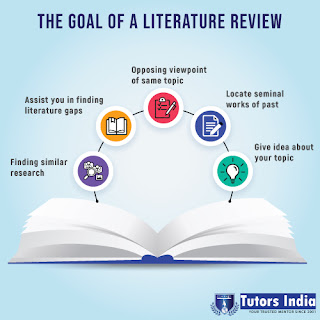Literature Review for Undergraduate Dissertation: The Purpose
Introduction to Literature Review
During the course of writing your
undergraduate dissertation, there will be a time when you have to take up
the task of writing a literature review.
For those who are unaware, a literature review is deemed as an integral part of
academic writing which would be instrumental in signifying understanding and
knowledge about academic literature regarding a particular topic [1]. However,
the important aspect that academic researchers need to know is that, literature
review is not just about writing, on the contrary, it would comprise of
critically assessing the literature [2]. That’s the main reason why it is known
as a literature review. Otherwise, it could have very well been termed as a
literature report.
It is impossible to write a literature review for a PhD without a thorough understanding
of the selected research field, access to the most recent and credible academic
sources, and a highly critical and evaluative writing style. At Tutors India we have highly qualified
professionals who have more than 10 yrs of experience in relevant research
fields to guide your work.
Goal of a Literature Review
According to [4] “…your task is to build
an argument, not a library”
For
More Information (Source):
https://www.tutorsindia.com/blog/literature-review-for-undergraduate-dissertation-the-purpose/


Comments
Post a Comment